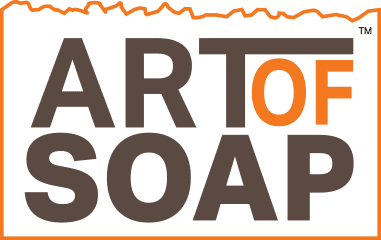For as long as one can remember, this simple product we know as the soap has always been an integral part of our daily life. Since the very beginning of our childhood, we are taught about the importance of having our hands clean and tidy especially before consuming any food or drink. And for this purpose, we are repeatedly reminded to wash our hands with soap whenever there is a need to do so. Whether or not we get bothered by this activity and its continuous reminders is a discussion for another time. As it turns out that this is a piece of common advice that has been encouraged and promoted throughout many generations since the very old times, perhaps hundreds and even thousands of years back, it becomes hard to not get excited about finding the origins of soap. Hence, in this brief account, our discussion revolves around this basic question – “when was soap invented?”.
When was soap invented and who invented it?
Mentioning an exact date or civilization that discovered, made, or invented soap is hard to claim. Almost every article on soap making mentions a different account about its inception.
However, one thing that everyone agrees on is that soap got invented around a thousand years back, with a few archaeological findings dating back to the BC era.
The earliest known recipes of soap making, especially the cold-process soap making, were found during the excavation of a city in ancient Mesopotamia, called Babylon. This account, perhaps the oldest of all other findings related to the invention of soap, dates back as early as 2800 BC.
From then onwards, some religious texts and historical accounts either specifically mention soap or a cleaning substance for personal cleaning and hygiene needs. Although, soap in its early days wasn’t used for personal cleaning at all.
What purpose did soap have originally?
Even though the general idea of soap today is to act as a cleaning agent, with different kinds of soaps available for different cleaning purposes, this wasn’t the case historically.
And it wasn’t even about personal cleaning and hygiene as well. Rather, it served as a cleaning substance to clean wool or cotton fibers before weaving them into cloth.
Another Roman legend, which hasn’t been proved yet, also relates to the importance of soap for having much cleaner clothes.
Thus, it is confirmed that instead of using it for personal hygiene and body cleansing, soaps in ancient times served as cleaning substances for washing clothes.
Even the Roman and Greek civilizations which introduced the concept of running water and public bathing didn’t use soap to clean their bodies. Both civilizations primarily used water only for cleaning their bodies during baths and then used scented olive oils for a pleasant smell.
What ingredients were used in soap originally?
From the very beginning till today, three basic ingredients in soap making have remained the same. These are – ashes or lye from it, fats, and grease or oils.
But what has evolved during this time, is how these basic ingredients get sourced or derived from.
For example, fats, grease, and oil in the early times came from slaughtered animals. Today, sodium hydroxide lye or lye is used, and oils and fats aren’t sourced from animals anymore.
When did soap start getting commercially made?
The beginning of the commercial production of soap can be dated back to 1807 and 1837 when soap manufacturing factories of Colgate based in New York and Procter & Gamble based in Cincinnati were formed respectively.
Although these soap manufacturing units did increase the current production volume of soaps, soaps at the time were still used for laundry purposes.
However, during the American Civil War, many reformers emphasized the importance of using soap and water for sanitary and personal hygiene needs. This motion led to an increase in demand for inexpensive toilet soaps.
Then, more and more companies entered the soap-making industry and began introducing new and better products. Many companies got into research and explored the possibilities of making significantly improved lab-engineered products.
Today, commercial soap manufacturing is a very well-established industry with specialized research and manufacturing facilities. It is because of this that besides mere solid soap bars, we now have other similar and purpose-oriented products such as shower gels, shampoos, soaps for different skin types, etc. Shop our natural soaps for the highest quality soap bars available.

